|
Web
and Book design, Copyright, Kellscraft Studio 1999-2008 (Return to Web Text-ures) |  (HOME) |
| MAPS OF MAINE THERE are no
good
maps of any part of our country. This is of course owing to the rapid
development of its cultural features. The best maps are those issued by
the
government, through the Coast and Geodetic Survey. These maps used to
be
available by the hundred for a nominal price, and they may still be had
by
paying a fair rate. When they were issued, they were creditably
accurate. That,
however, being in most cases at a time when there were no thoroughly
good
highways, there is no manner of knowing from these maps what the
first-class
roads now are. Nevertheless, such maps are of the highest value to one
who
studies seriously in detail any part of any state. Unfortunately they
do not
yet cover some of the more important sections. The contour lines of
these maps
are very helpful to the tourist. One sees at a glance where roads reach
those
sudden dips which are always pictorial; for instance, wherever a body
of water
lies against a quickly rising hill, there is beauty. The best
general
map of Maine is one given for the asking and issued as a matter of
advertising.
One meets the difficulty, however, that automobile maps seldom consider
natural
attractions, but devote their attention mostly to hotels. No adequate
attention
has yet been paid to indicating good roads. One frequently finds an
admirable
highway where nothing but a single faint line is shown on the map,
which line
means an impracticable road. Again, various through routes prove to be
theoretical, existing as plans only. The ignoring of important features
is
amusingly shown on one automobile map, which does not even locate Mt.
Katahdin,
though it is the outstanding feature of interest in Maine for natural
beauty
and grandeur. The plea may be entered that there is no motor route to
its base.
There is room
for
far better guide books than we possess, but it is a question whether
the public
would support them, as the best one so far issued, a work of monumental
zeal,
has not met with an adequate response. To sum up the
helps
to finding the best scenery in Maine: First, procure the national maps;
second,
procure the motor maps; third, check and reinforce the motor maps by
the
national maps; fourth, inquire locally for recent improvements in roads
and
learn what is at the moment practicable. It often happens that the
final main
route is at the time impassable. Fifth, in the region where there are
guides,
as in the back country, do not attempt to go alone. Sixth, you will
find for
yourself, more often than otherwise, the beautiful compositions. Leave
the roads
marked good and keep the ability to walk, by exploring paths. Maine has
not
been very thoroughly canvassed by art lovers. Artists are inclined to
congregate in a few old localities. By far the greater part of the
views in
Maine are yet to be delineated. Many of them have not even been
discovered. We
have in this state, near the great centers of population, unappreciated
glories, rivalling and often excelling those sought for over the sea or
beyond
the Mississippi.
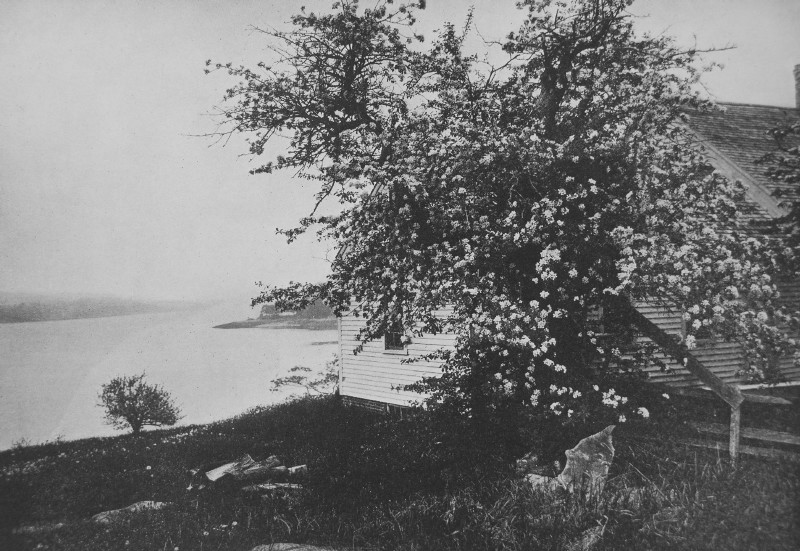 LOOKING SEAWARD - NORTH EDGECOMB 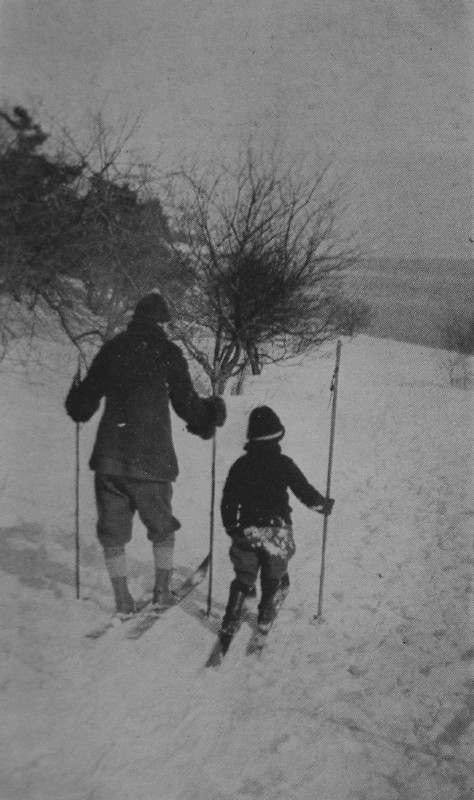 GOING WITH DADDY  THE SKI JUMP 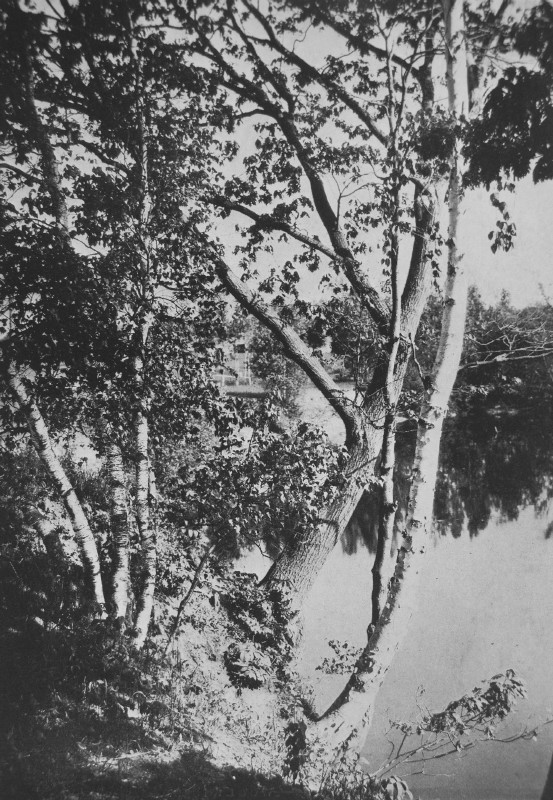 DANVILLE BANKS 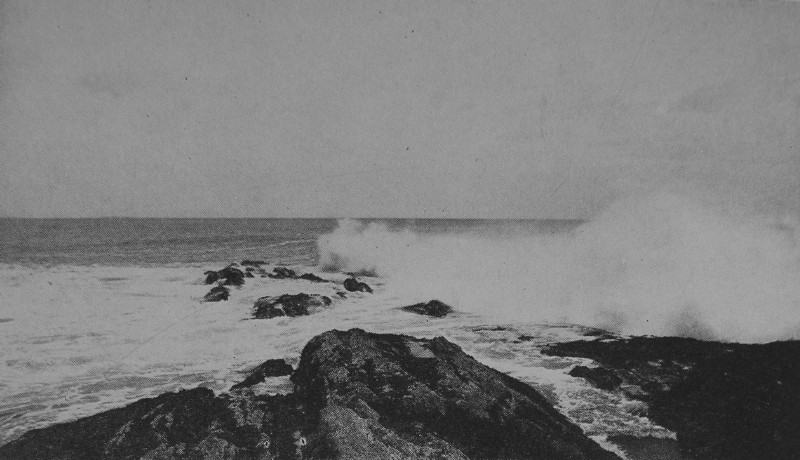 WHITE BANNERS ADVANCING 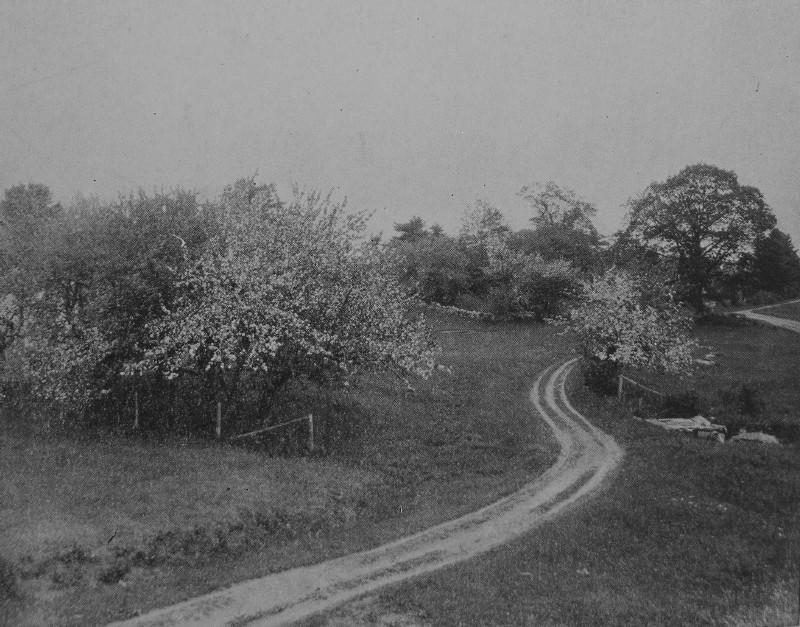 SWEEPING CURVES - WOOLRICH-DRESDEN THE COAST OF
MAINE THE
ramifications
of the sea coast of Maine, its extent, and its variety, ranging from
gently
graded beaches to the bold features of Mt. Desert, make it unique in
America.
Aside from moderate rocky elevations on the North Shore of
Massachusetts, and
the isolated out-croppings at Watch Hill, Rhode Island, the Atlantic
coast from
Maine to Mexico is a practically unbroken low shore. The Geodetic
Survey has
called attention to this striking circumstance. As a consequence,
Americans are
beginning to feel that the coast of Maine contains every feature that
the heart
of man could desire. We are born of a sea-loving, sea-viewing,
sea-faring race.
Despite the present trend of America away from the ocean, there are
still
enough of us who love the sea, and all its moods, to hold in increasing
appreciation the ecstatic charms unrolling themselves from Kittery to
Eastport.
There is
another
and still more striking aspect of the Maine coast: it abounds in more
harbors,
perhaps, than the rest of America together possesses. Some of these
harbors,
like Casco Bay, are to some extent developed. Others, like the regions
about
Wiscasset, are still very little used. Were there a sufficient number
of great
arteries leading back from these harbors, they might easily reach a use
a
hundred-fold greater than now. They lie awaiting the future. They are a
constant challenge to the man of imagination. The number of islands and
headlands in the bays and straits is legion. They are rock bordered,
and some
of the very islands themselves are famous quarries. very recently we
have been
told by careful students of the subject that granite is the building
material
par excellence. All the edifices that man will ever raise could be
supplied
with granite of the finest quality from the coasts of Maine. If we seek
farther
how these beautiful harbors are to be availed of, we find unlimited
lime,
sands, and clay, for all the manifold uses to which these basal
materials are
adapted. We cannot doubt
that the tremendous surge of the tides, which increases as we go
eastward on
the Maine coast, will some time be harnessed by the wit of man.
Hitherto their
white manes have escaped untamed. At a time when power is the great
focus of
civilization, and we are beginning to see the limitations of black and
white
coal, it is certain that the attention of engineers must more and more
be
turned toward the limitless power in the tides. Problems more abstruse
than the
utilization of the tide have been solved. We cannot believe that the
genius of
America is incapable of taming their power. Once that is done, Maine
will
become, in conjunction with Nova Scotia, a fountain of wealth for the
whole
nation. The strategic importance of the state, constructively
considered,
cannot be overrated. When we remember that the development of power has
already
exceeded many fold what could be accomplished by all human hands, we
may
readily deduce the truth of the thesis that civilization depends upon a
multiplied application of power. Then, standing on the heights of this
picturesque shore, we shall have on the coast of Maine a combination of
the
picturesque and the practical such as may stimulate the highest
faculties of
man. The Maine coast
is
not merely grand, as are the cliffs of Grand Menan, and as the long
beaches
like Old Orchard. In its hidden waterways, protected by islands, it
possesses
numberless quiet stretches of utmost charm. On this coast pour out the
fine
fresh waters of Maine, the Penobscot, the Kennebec, and the
Androscoggin. Those
who tire of marine waters only may sail through the estuaries of these
streams
into a world of splendid beauty, where the green of spring and the
flush of
autumn spread themselves to the very margin of the streams. There is
thus, on
the Maine coast and near it, a variety of impressions obtainable,
sufficient to
entertain the most exacting. It is a far cry from the summer mirror of
these
little bays, bathed in shimmering sunshine, to the titanic roar and
rush of
winter waters when they rouse themselves and bombard with terrific
detonations
the granite bulwarks of the coast. Thus the seasons, the sun, the wind,
the
contour of the coast line, and its varying elevations, all assemble
themselves
to supply us with a natural drama, answering to every mood in human
experience,
and appealing to the gentle, the dreamy, the descriptive, and the
tragic. Those
who have delineated human passions have failed to explain the strange
influence
of the natural world on the mind. One thing, however, is impressively
certain;
that there is great relief for the mind in the moods of the sea. The
restless,
the forlorn, the tempest-tossed, and even the cynically bitter find
help at the
ocean's brink. The deep without calls to the deep within. The
impression of
plenty, of power, and of eternity is conveyed by the proximity of the
sea. Our natural
intellectual poverty is challenged by the unbounded mass of the ocean.
Our
futility is rebuked by the sense that here is an element mighty enough
to meet
all challenges. Our longing for continuance is fed by the ageless ebb
and flow
of the ocean's heart. It would seem that power flows into us from the
sea. We
grow less petty in the presence of this gigantic phenomenon. There is a
convincing quality in the great green breakers such that we no longer
doubt that
what must be done can be done. But there is a mystic quality in the sea. It holds in its heart so many secrets and hints so constantly at shadowy and wondrous shapes, that its appeal to us is not only physical but spiritual. There is no faculty or department of human nature that is not influenced by the sea. We leap from the ocean to the stars with the greatest ease, and we are stimulated by the mystery and the bulk of the sea to attempt the grasp of mightier things beyond it. Thus the sea has always been a symbol of those vaster and occult powers which lie beyond it, and of which it is the noblest visible expression. The sea seems to connect us with greater worlds. Maine is especially happy in this tremendous asset of its rocky shores. No child is too young, no hoary grandfather too old to be interested and stimulated by the Maine coast. There all ships could find refuge and freights. There all souls can find food enough. There he who peers into the unseen will find a depth sufficiently challenging. There one who wanders from the monotony of the interior plains or the low coasts of the south, and reaches a headland of Maine, feels that he has reached something sufficiently important to engross him, and to fill his dreams. ON BOWDOIN'S CAMPUS We love to
touch
infinity. When we feel the tides touch our feet, we fancy ourselves
linked with
the infinite. It matters not that we cannot understand deeply the
voices of the
sea, and the voices beyond at which they hint. As a child listens with
a shell
at its ear, so the most profound minds listen at the border of
infinity. We are
grateful for any small echo that reaches us. We feel refreshed by the
slightest
revelation. While some are content to dream on the shore of the ocean,
others
launch boldly forth, and either trust or dare its mystery and its
terror. They
love to feel themselves at one with the universe. Whether we always
formulate
our thought or no, we are never fully convinced that the powers which
have
brought us forth can be dangerous to our being. At least, if we live
through
battles with the elements, we grow by means of the experience, and in
the soul
of victor Hugo we can hear the surge and the wail of the tempest. We
love to
adapt and to adopt into our own being those features of the infinite
which we
can apprehend. Nor is it necessary that we should understand in order
to
benefit by the sea. As a child unwittingly grows through the processes
of
digestion, so we gain new viewpoints and a better hope and reserve
powers by
laying our hand on the foaming, tossing mane of the ocean. By what we
learn of
the ocean, we suspect that we may learn far more. We cannot believe
that it has
told us any great part of its secrets. Its patient assault of its rock
barriers
shows no discouragement. Its eternal attack of all the evil things that
flow
into it, rendering them harmless, may indicate to us that all poisons
have an
antidote. It is always bringing to us some story of the past. It is
always
calling us to new journeys and investigations. It is the solace of the
poor and
the rebuke of the rich. It has something to say to all conditions of
men. We
are grateful to the sea because it speaks to us in a voice different
from that
of an ordinary appeal. We are made conscious by the sea that we are yet
inarticulate. As what we have said is an echo of what we have seen, it
is
apparent that we have seen little. If we ask for the classical
utterances on
various aspects of nature, art, and human experience, we shall find but
few of
these utterances satisfying, and in some instances there is no
utterance
whatever that at all meets our sense of what ought to be said. Sailors
ought to
be eloquent. Or is it true that the multitudinous voices of the sea
silence the
hearer, teaching him modesty and restraint? We speak of placing prisoners in solitary confinement. So far as that is concerned, we are all in the dark as to most knowledge, available or unavailable. Men who are never in jail, and indeed are of very lofty character, are yet seeking, and for the most part in vain, to hear and to see the voices and the visions that so slowly unfold for us. The ocean helps to let us out of prison, for we are all bound, hand and foot. Prophets seek to open our eyes and ears and to let us out of our prison house, and thereby they justify their calling as prophets. They are ever showing us something that we have not seen, but might have seen. They are all receivers, who gather from the ether such voices as are ever resonant there, but not available to us in our dullness. Thus the ocean may be to us almost anything that we wish to make it. 1t is a bathing place or a fishing place. That is something to those who see in it nothing more. To others it is a highway. To others it is a cosmic call. It is the only feature of the earth visibly large enough and mysterious enough to claim all our time and thought. 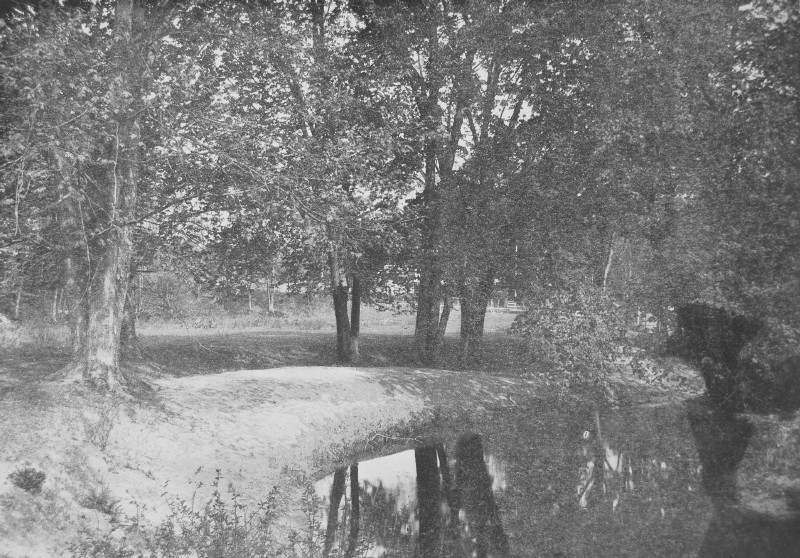 FRYEBURG WATERS 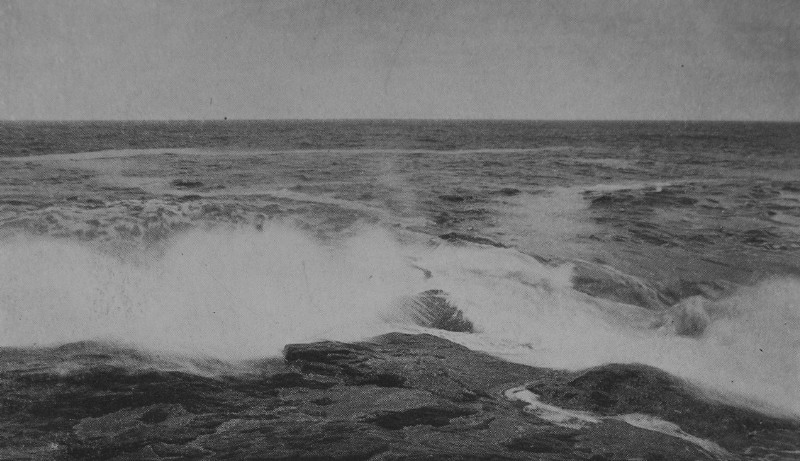 PROUD WAVES STAYED 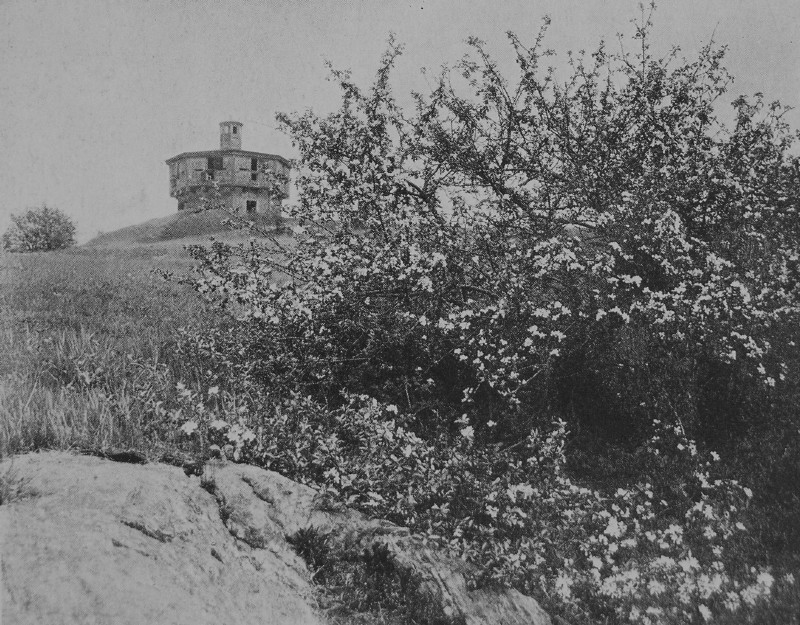 THE BLOCKHOUSE THRO' BLOSSOMS - NO. EDGECOMB 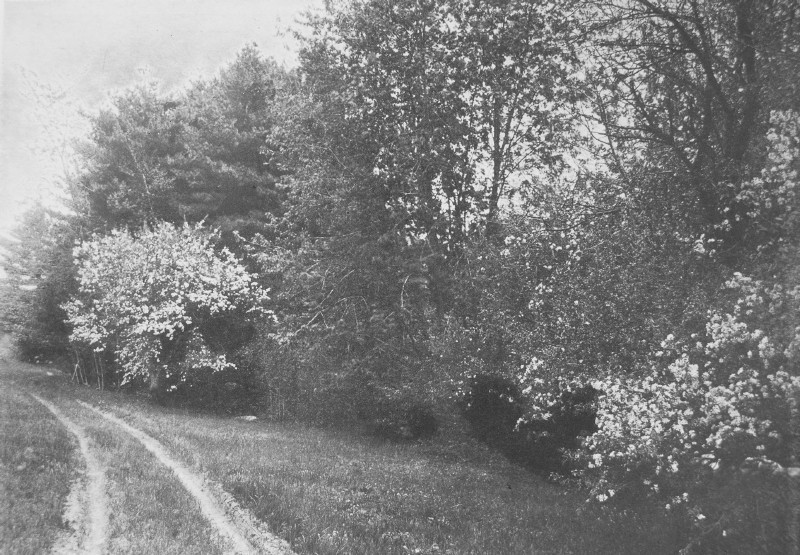 FOREST SIDE BLOSSOMS - FRYEBURG 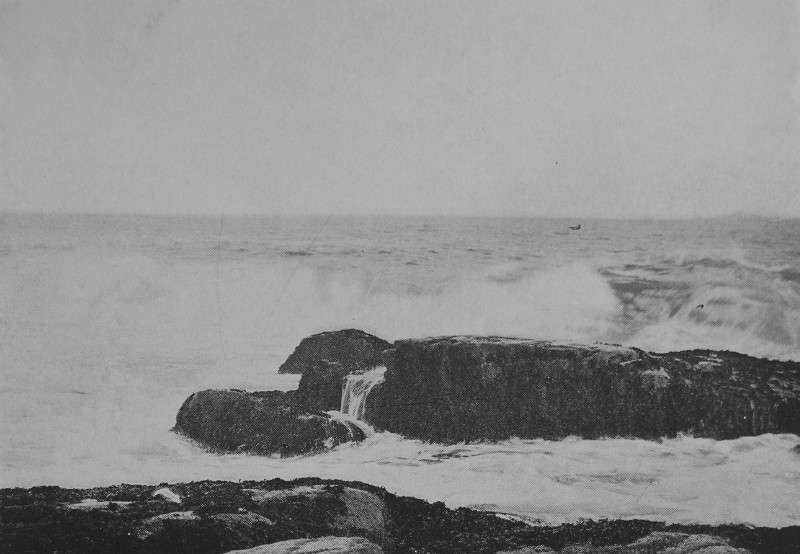 A TROUBLED SEA - OFF BOOTHBAY 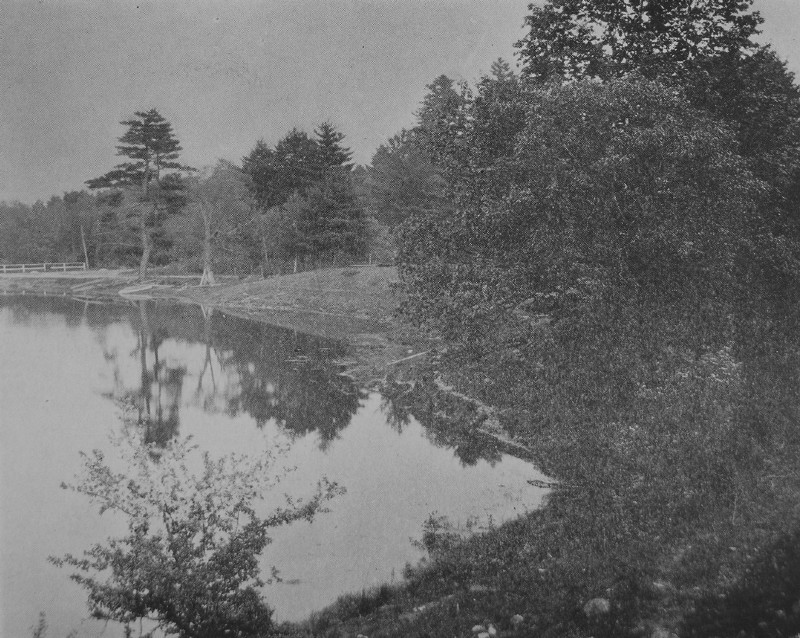 A WISCASSET POOL 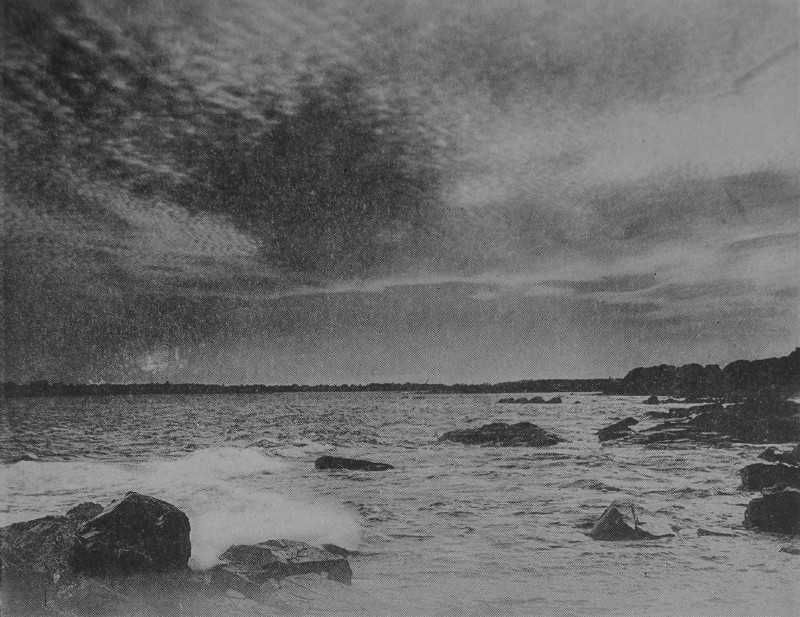 A MAINE COAST SKY - CUMBERLAND COUNTY 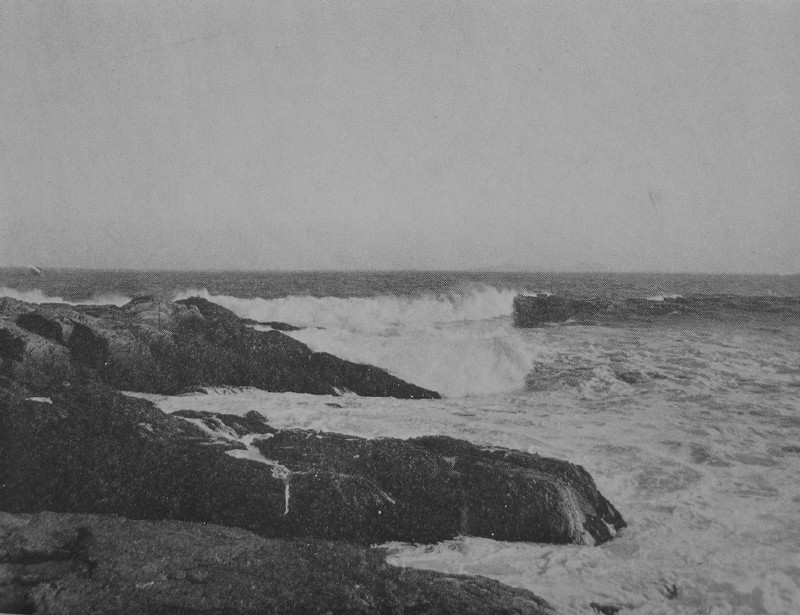 WHERE THE WAVE BREAKS 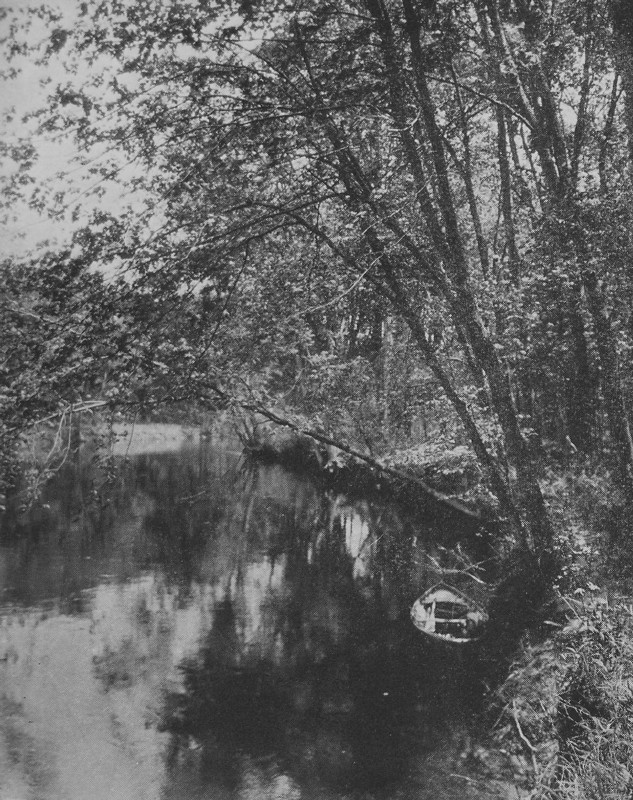 THE LINGERING SACO 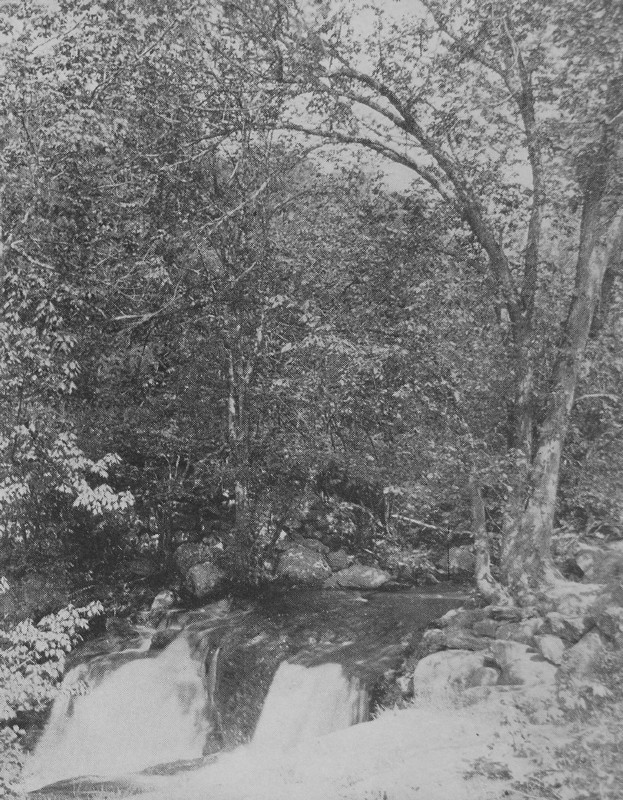 FOREST WATERS - DAMARISCOTTA 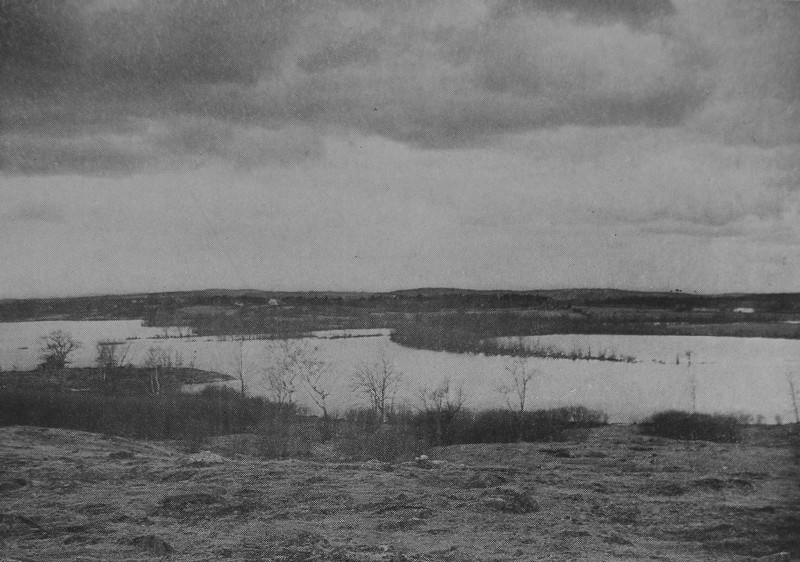 PLEASANT POND - GRAY 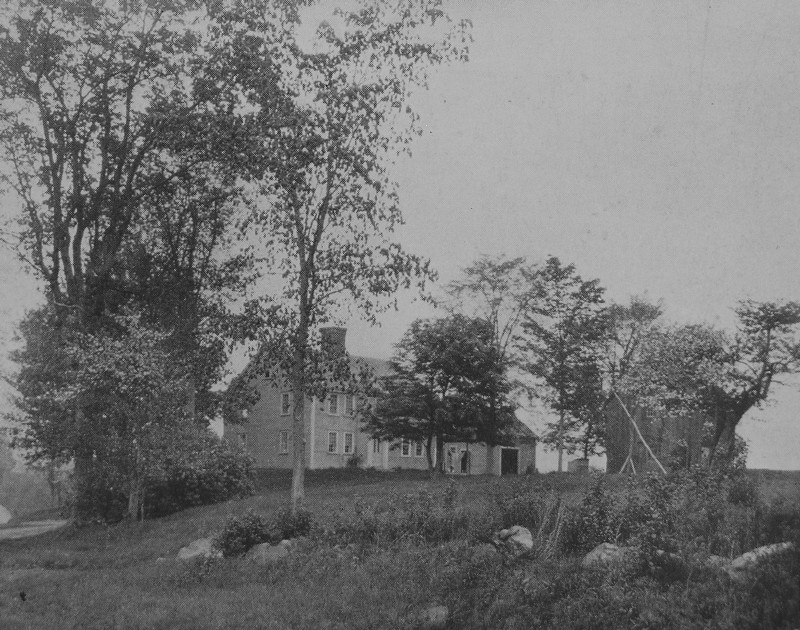 A WOOLRICH HOMESTEAD 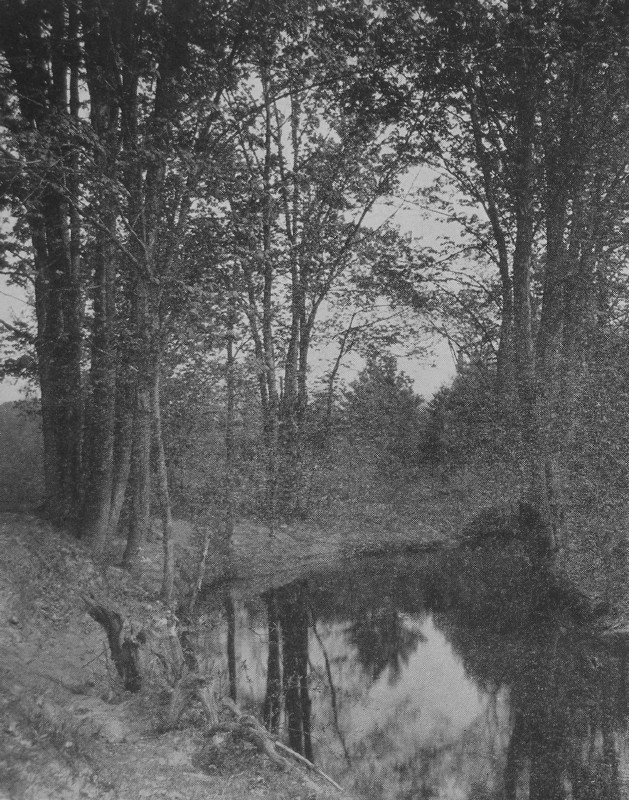 AN OLD RIVER CURVE - FRYEBURG 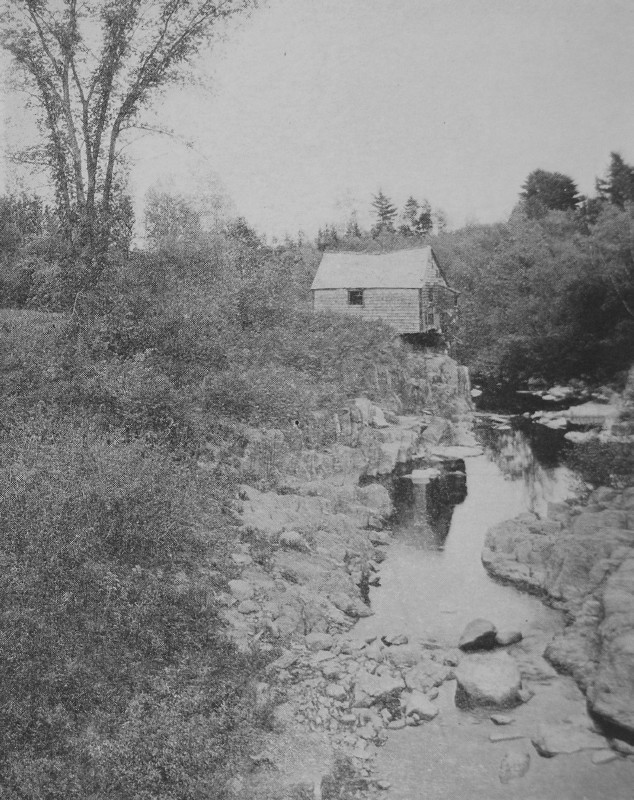 AN OLD, OLD MILL - ALNA In this
feature,
Maine is rich beyond expression. What history, what poetry, what
romance, lies
latent in the shore of Maine for the coming generations! To gain our
greatest
delight, we should think of the Maine shore as the starting point of
new epics.
What it has in store we cannot tell, but we know that so far its
influences are
mostly to come into use. As its tides may supply the motive power for
our
mechanics, so its appeals to our minds and hearts must supply the
motive for a
fuller literature, based on a richer life. But of this we may be sure:
the
Maine coast is at present, and for all time is likely to be, the most
attractive natural feature of America, except the western mountains;
and to
those who prefer shore to mountain, the Maine coast is supreme. |